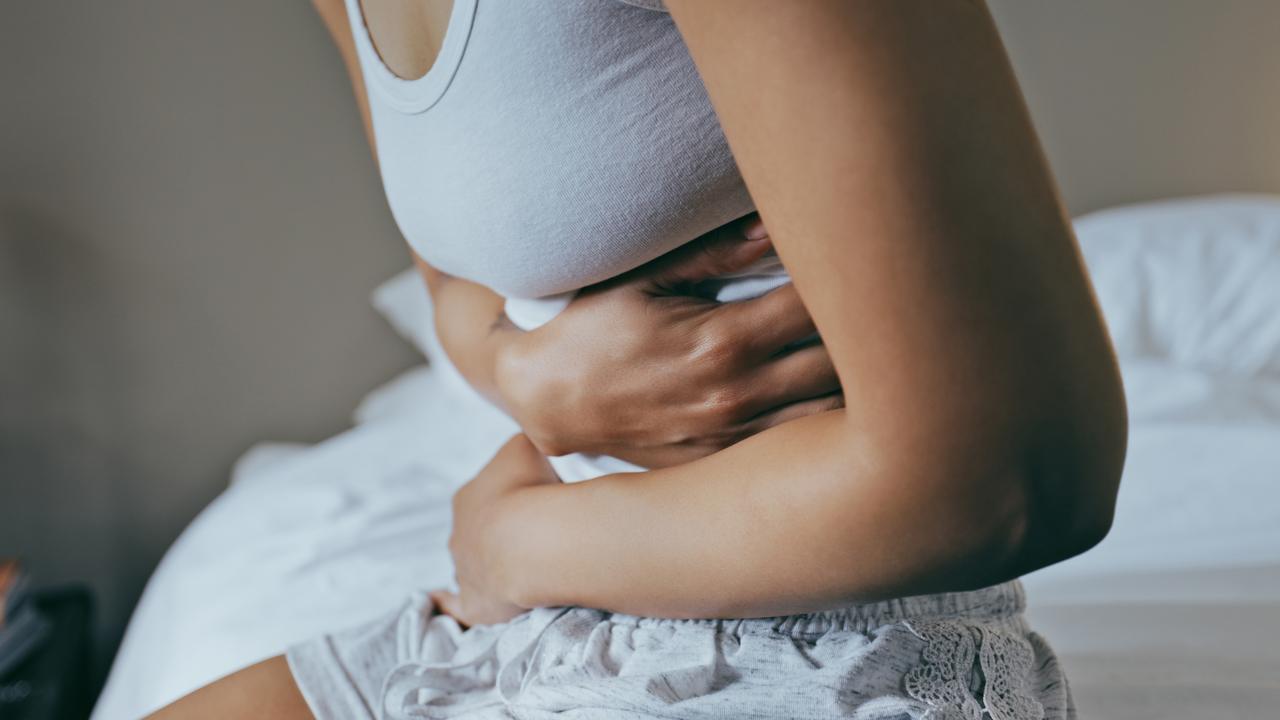SA police out on empty streets as state goes into first day of lockdown
As South Australians woke up on Thursday, there was an eerie silence over the city – one that will remain for the next six days.
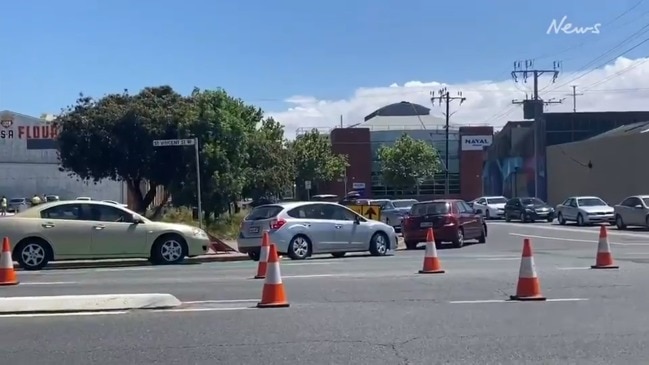
The busy streets of Adelaide looked like a ghost town as South Australians woke up to their first day in lockdown.
On Thursday morning, many chose to sleep in and remained indoors to keep cool as the mercury rose to 36C.
Regular peak hour traffic heading into the CBD was nowhere to be seen.
While the city was near-empty — with the exception of essential workers — SA Police officers hit the streets to hand out face masks to homeless people and essential workers that passed by.
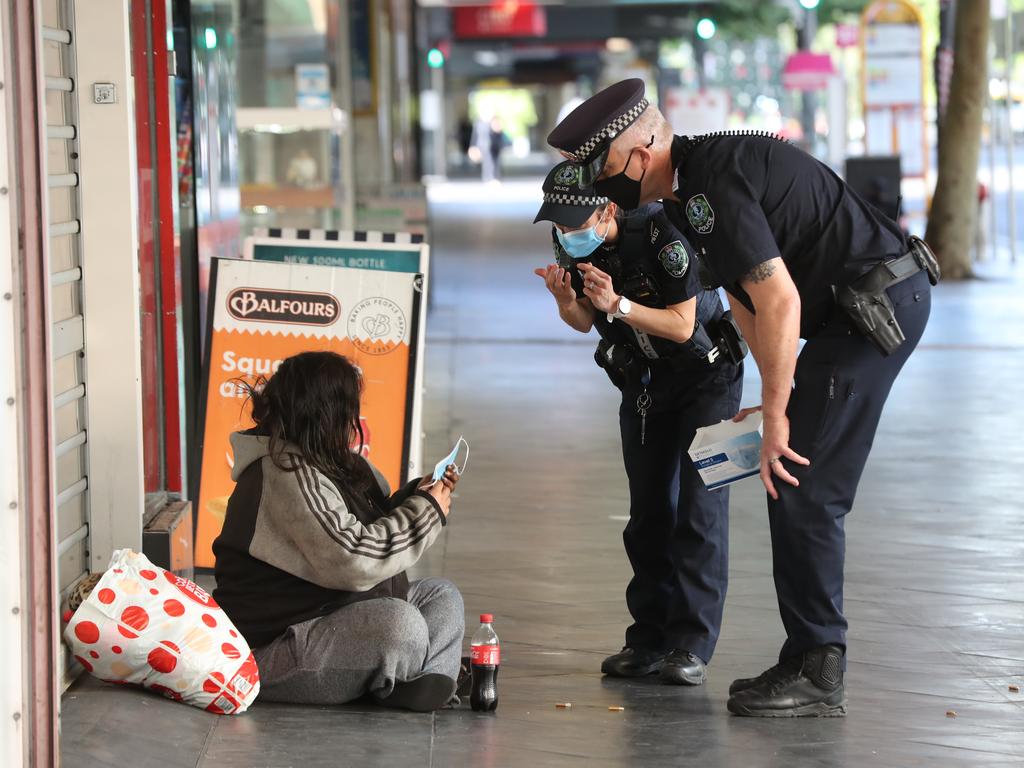
Police Commissioner Grant Stevens told ABC Radio additional patrols would be out over the next six days to ensure South Aussies were complying with the tough restrictions.
“We do have additional patrols out making sure people do the right thing but I’d say right throughout the course of this COVID-19 response, SA police have been taking a supportive role within the community and are working with the community,” he said.
“We’re not going to hit people with a big stick. We want to ensure they do the right things so they can remain safe and are looking after the welfare of people they care about as well.”
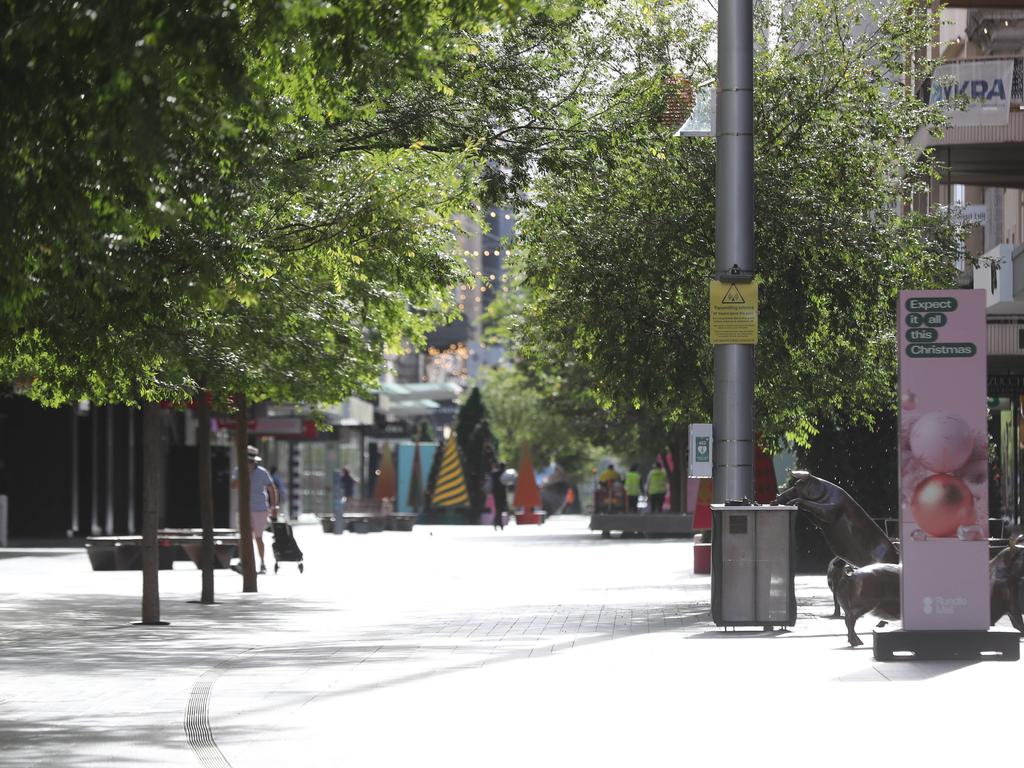
He said exercise and walking pets were not deemed essential but would be one of the first things that is reviewed.
“The first phase of this harsh lockdown is to eliminate all discretionary movement within the community,” the Commissioner explained.
“I know this affects everybody and most people want to go out and go for a walk and take their dogs for a walk and it will be one of the first things that is reviewed.
“We have even been speaking about that this morning in terms of how we manage this first six-day period.”
The streets will look just as empty over the next few days as the lockdown continues.
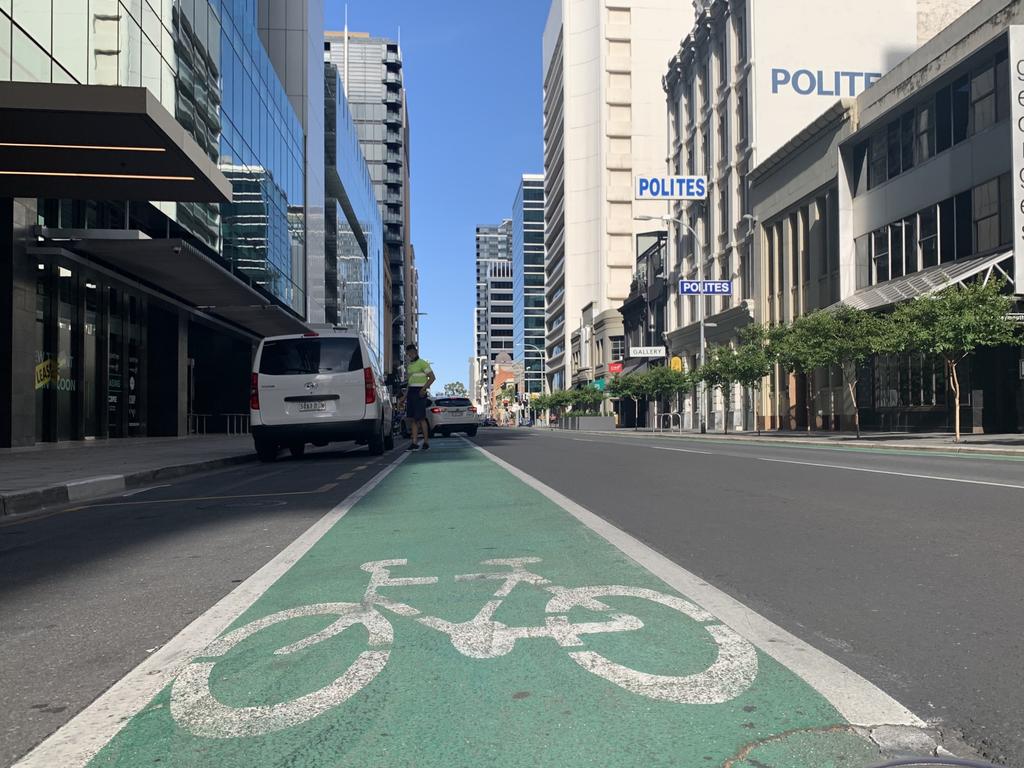
SA Health’s Chief Public Health Officer Professor Nicola Spurrier said the strain of COVID-19 involved could spread from person to person within three days.
She said a six-day lockdown gave her team time to chase the next two generations of the virus.
“My team have been working around the clock to get everybody followed up to about the fourth generation,” Professor Spurrier said on ABC Radio.
“That was a day or two ago and we know the fifth generation could be out there so we’re working to a really tight timeline to make all the phone calls and get people into quarantine.”

